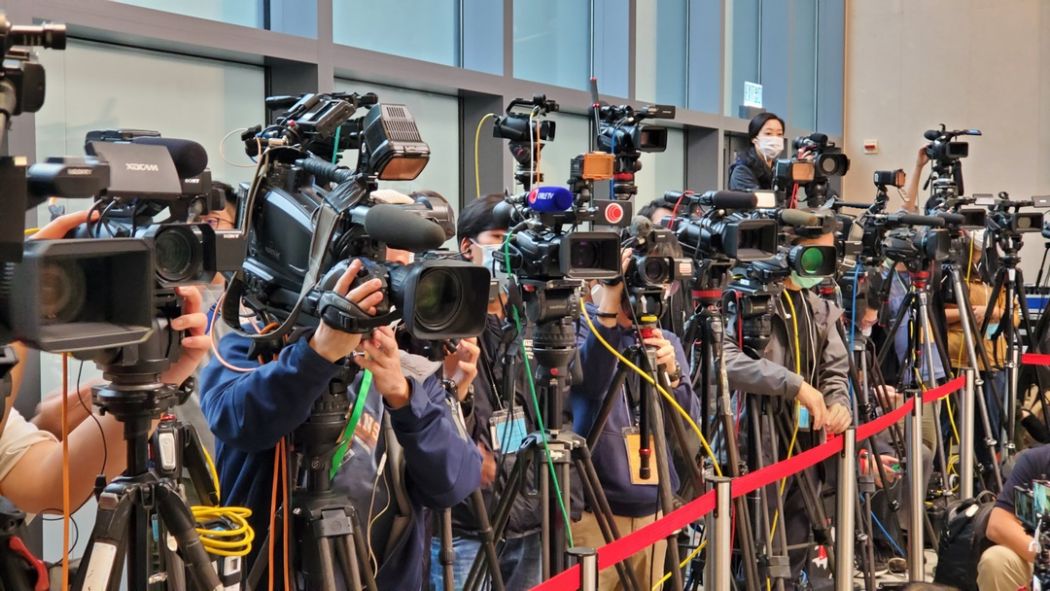By Keith B. Richburg
This is a question being heard more frequently since the city’s chief executive and his team have decided that the main problem stalling Hong Kong’s re-emergence onto the global stage after three years of political turbulence and pandemic isolation is negative news stories.

Negative stories, particularly in the foreign media, are supposedly giving outsiders a bad or unfair impression of the city. Officials want journalists to tell the “good” stories about the return of international conferences, concerts and sporting events, and the end of social unrest. They presumably bristle at the “bad” stories about national security law trials, the ongoing arrests, the erosion of press freedom and the lingering economic impact of the disastrous “zero-covid” policy.
This is a complaint one also hears frequently from mainland Chinese officials and supporters. The foreign media always focuses on telling bad stories about China. Why not tell stories about China’s breathtaking modernisation and how China under the Communist Party has lifted more people out of poverty more quickly than any other country in history?
I find several problems with this criticism.

First, journalists don’t set out to write “good” stories or “bad” stories because there’s no such thing. There’s only stories. Readers can decide whether stories present a place or people in a good or bad light. But stories are stories, and they only need to be timely, accurate, well-researched and fair.
A story shedding light on a problem is not necessarily a “bad” story. Exposing problems, holding officials to account and giving a voice to the voiceless are essential roles for journalists.
Second, those who criticise reporters for supposedly focusing on the negative fail to understand the nature of news. The fact that a thousand flights take off from Kennedy Airport in New York every day is not news; the one that slides off the runway and crashes is news.
Recently, a Chinese central government official told Hong Kong reporters they should highlight China’s modernisation and rapid development.

But China has been modernising and developing rapidly for decades. That story is widely known and has been regularly chronicled around the world. So it hardly fits the definition of news.
Officials also often throw up obstacles to journalists who want to cover stories they might consider positive. For example, officials are constantly touting the benefits of the Greater Bay Area linking Hong Kong, Macau and nine municipalities in China. The problem is most foreign journalists can’t freely go there from Hong Kong to report because of the difficulty of getting visas to China. They’ve never arranged a foreign press trip for international journalists to see the Greater Bay Area for themselves.
Finally, it’s not the job of real journalists to promote places or policies. Governments have their own public relations arms and legions of spokespeople to do that. In countries without a free press, the government-controlled media plays the role of parroting and championing the official narrative of the day. But that’s not journalism — it’s propaganda.

One of the time-honoured mantras of journalism is to “comfort the afflicted and afflict the comfortable.” I also believe in the definition of news widely attributed, in some variation or other, to the renowned writer George Orwell. “Journalism is printing what someone else does not want published,” he said. “Everything else is public relations.”
Keith B. Richburg is the director of the University of Hong Kong’s Journalism and Media Studies Centre.
Support HKFP | Policies & Ethics | Error/typo? | Contact Us | Newsletter | Transparency & Annual Report | Apps
| HKFP is an impartial platform & does not necessarily share the views of opinion writers or advertisers. HKFP presents a diversity of views & regularly invites figures across the political spectrum to write for us. Press freedom is guaranteed under the Basic Law, security law, Bill of Rights and Chinese constitution. Opinion pieces aim to point out errors or defects in the government, law or policies, or aim to suggest ideas or alterations via legal means without an intention of hatred, discontent or hostility against the authorities or other communities. |
Help safeguard press freedom & keep HKFP free for all readers by supporting our team

More HKFP OPINION:
HKFP has an impartial stance, transparent funding, and balanced coverage guided by an Ethics Code and Corrections Policy.
Support press freedom & help us surpass 1,000 monthly Patrons: 100% independent, governed by an ethics code & not-for-profit.










